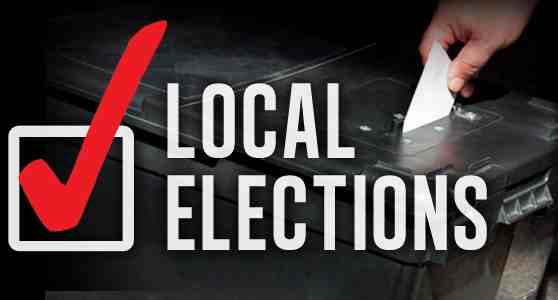With changes made to local government by Jeff Kennett, the local government framework has moved from being representational democracy – of annual elections, many councillors representing smaller wards and dominating the running of the municipality or shire.
Based on increasing notion that local government elections are an irritation to the smooth corporate running of council rather than an exercise in democracy; current councils portray a more corporate approach with fewer councillors, fewer elections and the chief executive officer being the most powerful player with the mayor performing a mere quasi-ceremonial role, writes Dr Nick Economou.

Melbourne, October 5: Only months after the extinction of the light and motion of the national election, Victorians find themselves at the polls again – this time for local government elections.
Under Victoria’s local government laws, all the state’s councils and shires are required to have elections every four years. Victoria’s fixation with fixed parliamentary terms extends to local government as well.
The blame for the close proximity of council elections to the national election rests with Malcolm Turnbull and his decision to opt for an early, double-dissolution national election.
As a consequence, electioneering is on in earnest as the October 22 deadline for local government elections looms.
Thanks to the tireless analytical work of the Municipal Association of Victoria – we now know that over 2000 people have nominated for 637 vacancies across 78 councils; including, of course, the City of Melbourne for which there is a direct election for the positions of Lord Mayor and Deputy Lord Mayor as well.
There will be no election in Greater Geelong where the Andrews government decided to install administrators following the sacking of the elected council in the aftermath of allegations of bullying.
Most of the councils across Victoria will be utilising postal voting, so electors won’t have to attend a town hall or local school to cast a ballot. Voting is compulsory for citizens, however, and in the City of Melbourne, non-Australian citizens who own a business or property within the city’s boundaries may be entitled to vote.
Most readers of the Bharat Times who are on the electoral roll should expect the imminent arrival of ballot papers and candidate statements in the post, although some may need to attend the local town hall to vote.
The politics of local government elections in Victoria defy easy analysis mainly because of the absence of the major political parties as direct competitors in the contest.
The Greens and the Animal Justice party – which is a splinter group of the Greens – do nominate party-endorsed candidates, however. The Greens place a lot of importance on securing council seats, so the party puts a bit of effort in to these elections.
The lack of Labor and Liberal-endorsed candidates partly reflects party rules that prevent party endorsements for local elections. It also reflects a demographic reality where large slabs of the state are actually full of voters with strong partisan allegiances to the major parties – Labor in the case of western and northern suburban Melbourne, Liberal in the affluent suburbs, and the National party in regional and rural areas.
In a number of local government contests the battle will be between candidates who are probably members or partisan supports of the same major party.
Press coverage of the election has thus far concentrated on the odd disparities in candidate rates across wards in some local government areas. Large numbers of candidates have nominated in some council areas covering the interface between the outer suburbs and rural districts, including Wyndham, Casey and Nilimbik (the MAV also note large fields in Monash – a council with a reputation for being the place where aspiring Labor and Liberal state and federal parliamentarians cut their teeth).
These numbers have raised again the spectre of ‘dummy candidates ‘ – that is, people who are asked to run by an aspirant in order to impact upon both the spread of primary vote and the flow of preferences. Here arises a paradox, with some observers seeing the rising number of candidates as a sign of a healthy representative democracy, while others see it as a tactic to distort voter choice.
In all likelihood, the past pattern whereby incumbents are re-elected will probably occur again in this election. In the past, the only thing that tended to disrupt the advantage of incumbency was an instance of a major controversy – and usually a major dispute over planning – occurring somewhere in a local government area. The consequence of such a controversy has so far been the defeat of an entire council, including those councillors who were on the side of those aggrieved by a contentious outcome.
Apart from the result itself, the mechanics of the local government electoral process is also under scrutiny.
Thanks to changes made to local government by Jeff Kennett’s Liberal-National coalition, local government has moved from being oriented towards the idea of representational democracy (small councils, annual elections, many councillors representing small wards, and a sense that elected councillors dominated the running of the municipality or shire) to instead embrace a more corporate approach (bigger councils, fewer councillors, fewer elections and the chief executive officer being the most powerful player with the mayor or shire president performing a quasi-ceremonial role).
This transition was justified in the name of efficiency that would be rewarded by lower property rates.
The downside has been this increasing notion that local government elections are an irritation to the smooth corporate running of council rather than an exercise in democracy. Keeping candidates and voters apart for four years at a time re-enforces this notion as does the broad acceptance of the postal vote, rather than the attendance ballot, as the preferred way of conducting an election.
For all this, the enthusiasm of people to participate in these elections persists, although it remains to be seen if this willingness to defy the corporatisation of local government will be taken up with similar feeling by the voters themselves.
(Dr Nick Economou teaches Politics at Monash University's Clayton campus and is a regular commentator on Australian Radio and Television)

